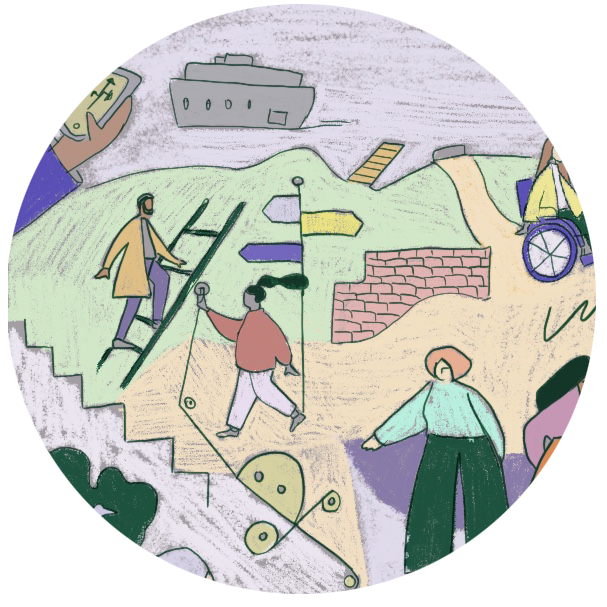approach
we believe that profound systems change begins from where we stand in the system.
we facilitate transformative learning experiences that build capacity for systems thinking and systems wayfinding.

'to transform the world, we must begin with ourselves; and what is important in the beginning with ourselves is the intention. the intention must be to understand ourselves, and not to leave it to others to transform themselves. this is our responsibility, yours and mine; because, however small may be the world we live in, if we can bring about a radically different point of view in our own existence, then perhaps we shall affect the world at large.'
~ j. krishnamurti
our mental model of systems thinking:
- 'doing systems' is a process, not an outcome. the goal is to deepen our insight on the system. systems work doesn't have an end point, but is an ongoing journey
- our own personal mental model and practice is the strongest influence in how we understand and see a system.
- there is no one way to do systems work, no one starting point. there are multiple journeys and paths
- we conceptualize and work from a social and complex systems approach - using social learning activities to unpack and explore the system.
working with us means:
spending time unpacking what is currently invisible
-
because root causes of complex problems are hidden in plain sight
-
because we need to pull back the blinders on bias
-
because the systems becomes visible through layers of perspectives
centering the inner work
-
to change the systems from where we stand
-
to surface and contend with our bias and assumptions
-
because our personal practices are the most sustainable mechanisms for systems change
returning to what we think we know
-
to continue to build and expand understanding
-
to push beyond singular ways of knowing
-
to engage with the dynamic nature of the system
building and adapting as we go
-
to respond to what emerges
-
to contend with unintended consequences
-
to enable the system to guide the work
we acknowledge the strength, resilience and wisdom of Aboriginal and Torres Strait Islander people on this continent. we celebrate their creativity, ingenuity and contributions to community. we recognize first nations people around the world as the first systems thinkers and are grateful for the immense generosity in the wisdom and knowledge shared with us.
we recognize the historical and ongoing harm of colonization and take up the responsibility to contribute to processes of reconciliation and reparations and to listening and integrating lessons from truth telling.

